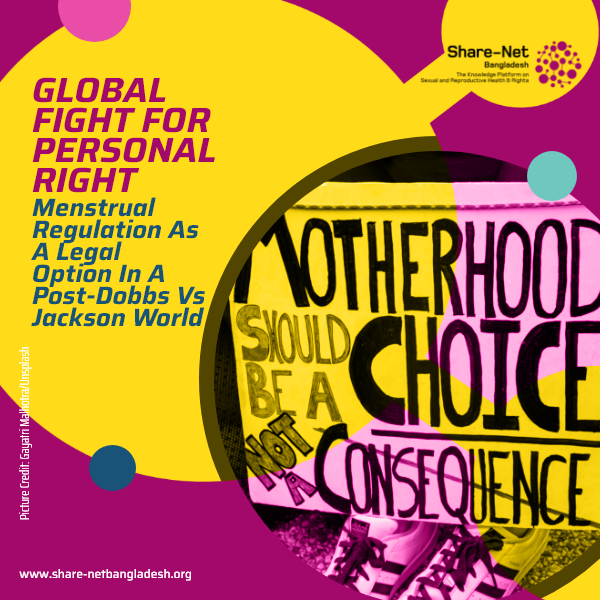Global Fight For Personal Right: Menstrual Regulation As A Legal Option In A Post-Dobbs vs Jackson World
In the wake of the Dobbs v. Jackson Women’s Health Organization ruling and the return of Donald Trump to the White House, access to safe abortion in the United States has come under historic threat. The 2022 decision overturned Roe v. Wade, erasing five decades of federal protection for abortion rights. Since then, 21 U.S. states have either fully banned or heavily restricted abortion services, affecting nearly 40% of Americans of reproductive age.
But amid growing reproductive health deserts, menstrual regulation (MR) — a practice rooted in South Asia — is gaining global attention as a legal and safer alternative. In countries like Bangladesh, where abortion is technically illegal except to save a woman’s life, MR has been allowed since the 1970s and reaffirmed in a 2020 policy update. The practice enables women to “bring back a missed period” within 10 weeks of their last menstrual cycle, even without confirming a pregnancy.
“What I did was simply regulate my period, nothing more,” said a young Peruvian woman, reflecting a sentiment increasingly echoed by American women seeking discreet reproductive solutions without legal consequences.
Menstrual regulation usually involves mifepristone and misoprostol, the same pills used in medical abortion, but framed differently. The absence of a pregnancy test creates a legal gray area—avoiding abortion classification, and more importantly, criminal charges.
According to Joanna Erdman, a health law professor, “Pregnancy isn’t a definitive moment. The idea of ‘not-yet-pregnant’ opens up space for reproductive options without crossing legal lines.”
As the Trump administration tightens its grip, there’s fear that the U.S. may export its anti-abortion agenda globally—jeopardising SRHR programs in aid-dependent countries like Bangladesh. Historically, U.S. funding has influenced global reproductive policies, especially through instruments like the Global Gag Rule, which was reinstated under Trump’s previous term. If renewed, it could restrict funds for organisations offering or even discussing MR, despite its public health importance in Bangladesh.
“In 1971, Bangladesh chose to protect women’s reproductive autonomy by legalising menstrual regulation. The U.S. can do the same,” argues Naomi Michelson in a recent analysis, emphasising that MR saves lives where abortion access is blocked.
In the U.S., emerging platforms like Period Pills Fund and National Working Group on Period Pills are now pushing for menstrual regulation as a legal and cultural alternative to abortion, especially for those in conservative states. A 2020 study found that 70% of participants preferred period pills over taking a pregnancy test, citing emotional relief and privacy.
Still, challenges loom. New state laws like Louisiana’s criminalisation of abortion pills and proposed federal bills threaten providers with up to 25 years in prison. These actions mirror the same anti-abortion logic that could pressure countries like Bangladesh to reconsider MR policies under international influence.
As reproductive rights face setbacks in the USA, menstrual regulation stands at the crossroads of law, public health, and bodily autonomy. For Bangladesh, it’s a model that must be defended—not just for its own people, but as a global example of how to maintain dignity, access, and choice in the face of conservative tides.
Source: Ms. Magazine
Picture Credit: Gayatri Malhotra/Unsplash


